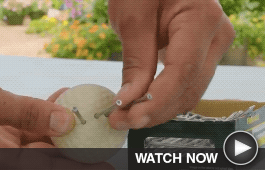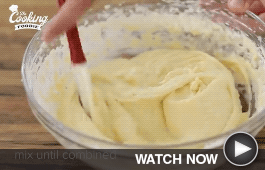Featured Articles
POPULAR APPS
POPULAR APPS

Picture Insect Does it bug you not to know what insects are in your garden? Take a photo and this app will identify the mystery insect. Learn more… |

AirBrush Nobody’s perfect. But AirBrush makes it easy to look that way by removing imperfections and enhancing your photos. Learn more… |

Truist Long Game Work toward your savings goals while you learn and have fun. This app lets you play games for chances to win cash. Learn more… |
||||||
COOKING DEMOS
COOKING DEMOS
CUSTOMER ALERT
CUSTOMER ALERT
Stay Alert – Watch Out For Home Warranty Scams
 If you get an unexpected letter from Home Warranty Direct, Home Warranty Solutions, or something similar, look at it closely! It could be a deceptive solicitation for a home warranty service.
If you get an unexpected letter from Home Warranty Direct, Home Warranty Solutions, or something similar, look at it closely! It could be a deceptive solicitation for a home warranty service.
Here’s how the scam typically works: The letter, which appears to be an official document related to your mortgage lender, falsely claims that your home warranty is about to expire and must be renewed (even if you never had a home warranty). In some cases, the mailing is made to look like it contains a check, referred to as a “Renewal Fee Voucher.” It’s not a check. It’s an attempt to lure you into their scheme.
You won’t be dealing with your mortgage lender if you call the number and “renew” your warranty. Instead, you’ll be sending money and personal information to a company that employs misleading sales techniques, or worse yet, to criminals outside the United States trying to collect your credit card or bank account information.
To avoid being scammed, do the following:
 If you get an unexpected letter from Home Warranty Direct, Home Warranty Solutions, or something similar, look at it closely! It could be a deceptive solicitation for a home warranty service.
If you get an unexpected letter from Home Warranty Direct, Home Warranty Solutions, or something similar, look at it closely! It could be a deceptive solicitation for a home warranty service.
Here’s how the scam typically works: The letter, which appears to be an official document related to your mortgage lender, falsely claims that your home warranty is about to expire and must be renewed (even if you never had a home warranty). In some cases, the mailing is made to look like it contains a check, referred to as a “Renewal Fee Voucher.” It’s not a check. It’s an attempt to lure you into their scheme.
You won’t be dealing with your mortgage lender if you call the number and “renew” your warranty. Instead, you’ll be sending money and personal information to a company that employs misleading sales techniques, or worse yet, to criminals outside the United States trying to collect your credit card or bank account information.
To avoid being scammed, do the following:
- Go to the source. If you receive any correspondence about your mortgage or home warranty that you aren’t sure about, don’t use the contact information in the message. Instead, call your lender directly to inquire about the matter. Look up their contact information separately on your mortgage bill or search for your lender’s customer service line on their website.
- Watch out for high-pressure offers or threats. Don’t let scammers pressure you to act immediately, even if they say you could lose your home. If someone tries to use scare tactics, stop communicating with them and contact your bank or lender directly.
- Shopping for a home warranty? Do your research first. Evaluate several options and read the terms closely before signing a contract.
SITES OF THE MONTH
SITES OF THE MONTH

Guide to Adventure It’s a great month to enjoy the great outdoors. Get ready with this site’s content on gear, hikes, trails, skills, and more. Learn more… |

Garage Sale Pointers If you’re decluttering and want to sell your old stuff, check out these garage sale tips from Better Homes and Gardens. Learn more… |

Summer Crafts for Kids Discover lots of fun crafts that your children or grandchildren will love to make — all easy to do using low-cost supplies. Learn more… |
||||||






